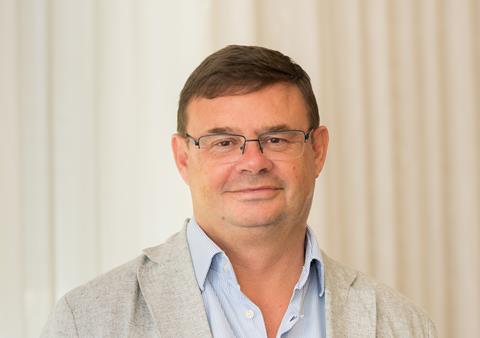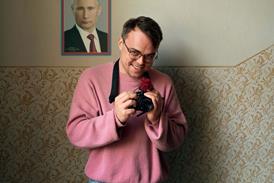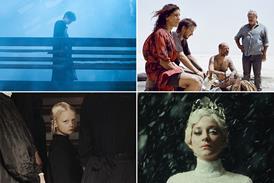
Venice Production Bridge (VPB), the film market of the Venice festival, is this year feting and celebrating Japan alongside its coproduction, gap-financing and IP-focused activities.
Japan and Italy recently signed a coproduction agreement amid signs that Japanese filmmakers are increasingly interested in working with international partners, and receiving government backing for doing so.
Leading figures from the Japanese industry including Naofumi Makino, director of digital content & technology for the Japan External Trade Organisation, and Ryohei Tsutsui, producer at Trixta, are participating in this year’s VPB.
Japanese projects will participate in the Venice Gap-Financing Market and the Immersive Market alongside a series of panels and events that VPB head Pascal Diot suggested will “trigger” further collaborations between Japanese and European partners.
One session on September 1 will explore European-Japanese animation coproduction opportunities as part of VPB’s collaboration with the Annecy Animation Festival.
“In animation, the major studios in Japan are still producing animé, but less and less. A lot of independent small studios are emerging [in Japan]. As they don’t have the financial power of the majors, they need to coproduce,” said Diot.
VPB will also hold a focus on Luxembourg and Wallonia-Brussels, run a panel with Canada’s Indigenous Screen Office exploring the “Rise of the Circumpolar Screen Industry”, and provide a platform for the Italian industry to explain its reformed film and TV tax credit system to international partners.
Diot anticipates around 3,000 industry delegates to attend, including a few hundred distributors – mainly European but also a smattering of North Americans – and around 1,200 producers. (VPB, he notes, is geared more to producers than sellers and buyers.)
Middle East & Ukraine
Unsurprisingly given the ongoing situation in Gaza, this year’s Final Cut selection, which supports films in post-production from African and selected Middle East countries, received no applications from Palestinian projects.
However, one of the seven projects selected is from Lebanon: In This Darkness I See You, directed by Nadim Tabet.
The Saudi influence at VPB is also growing, noted Diot, with three of the Final Cut projects Saudi coproductions: Tabet’s film, Morad Mostafa’s Aisha Can’t Fly Away and Mohamed Siam’s My Father’s Secret. (All three also have backing from the Qatar-based Doha Film Institute, along with a fourth Final Cut project – Karima Saidi’s documentary Those Who Watch Over.)
The VPB is again hosting a Ukrainian Day which will include discussion about the current state of the Ukrainian industry more than two years after the Russian invasion as well as financing initiatives.
Two Ukrainian titles are participating in the Venice Gap-Financing Market: Yegor Troyanovsky’s new documentary Cuba & Alaska, which trails military paramedics from Cuba and Alaska as they risk their lives in war-torn eastern Ukraine; and Eva Neymann’s Twins, a dark psychological drama produced by leading Ukrainian outfit Toy Cinema.
UK projects in the selection include Matt Winn’s The Good Life, a sharp-edged comedy set in a rarefied world of wealth and privilege in London, which has Steve Coogan attached to star and is produced by Sarah Sulick through Funny Peculiar and Bright Pictures.
One territory that no longer features prominently is China. “Probably because of the tougher and tougher censorship you have now in China, we have less and less interesting projects – that’s a pity,” said Diot.
The leading streaming players from the US and Europe will be back on the Lido, added the VPB head, with different business goals than they would have at Cannes or Berlin.
“Here in Venice, we are offering them [the chance] to meet producers and publishers. They are mostly here to look for IP, not completed films. They are not really meeting sales companies,” Diot noted.
Several will attend the Book Adaptation Rights Market, which features 33 publishers and literary agencies and has a special focus on crime and thriller books ripe for adaptation.
While VPB doesn’t have the scale of the Cannes Marché or European Film Market, it still manages to attract a host of highly influential industry executives.
“Venice is an expensive city so most of the companies are just sending the decision-makers. They do not, like in Cannes, come with the assistants and the assistants’ assistants,” Diot commented.
“We don’t have the infrastructure to welcome 10,000 visitors.”























No comments yet